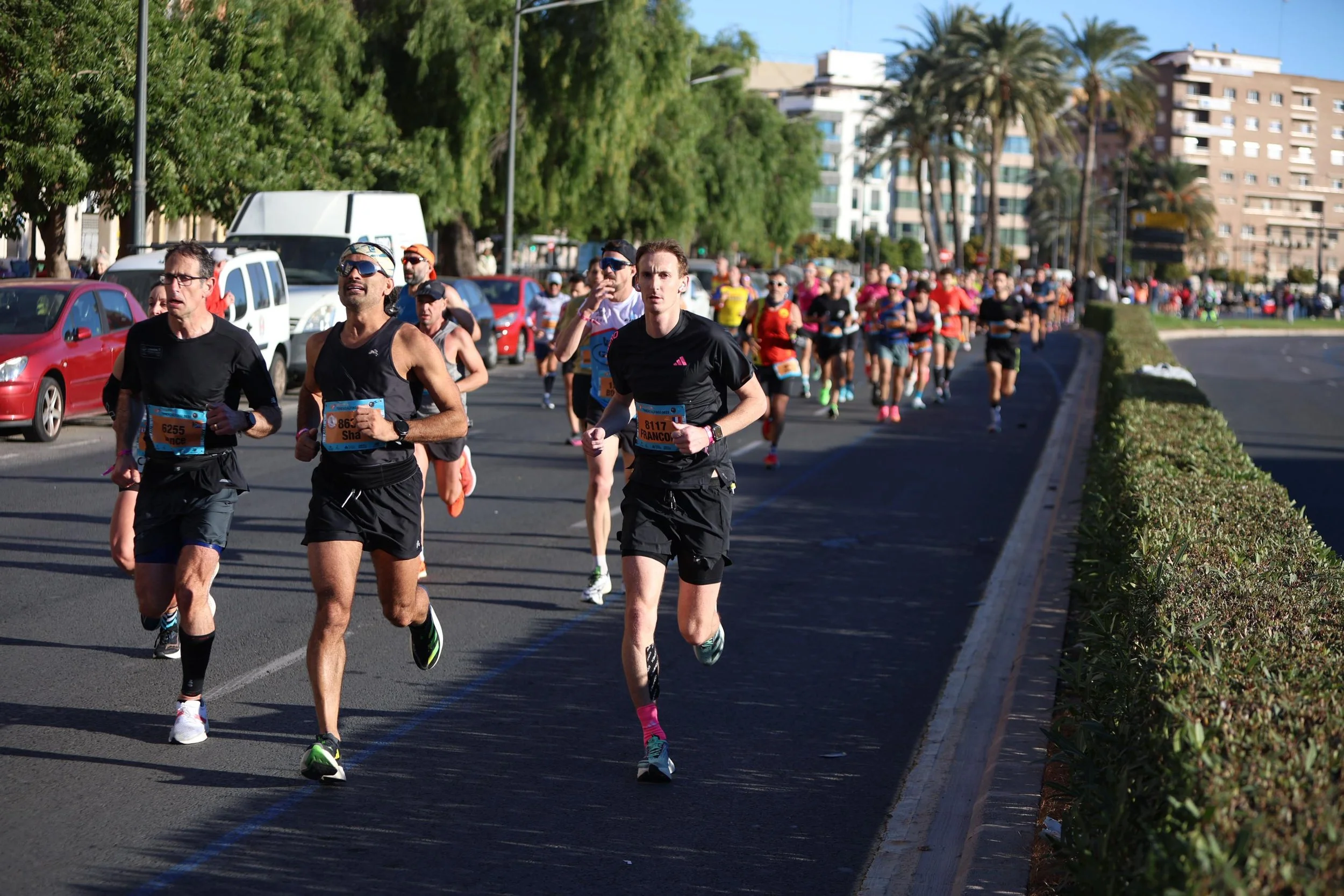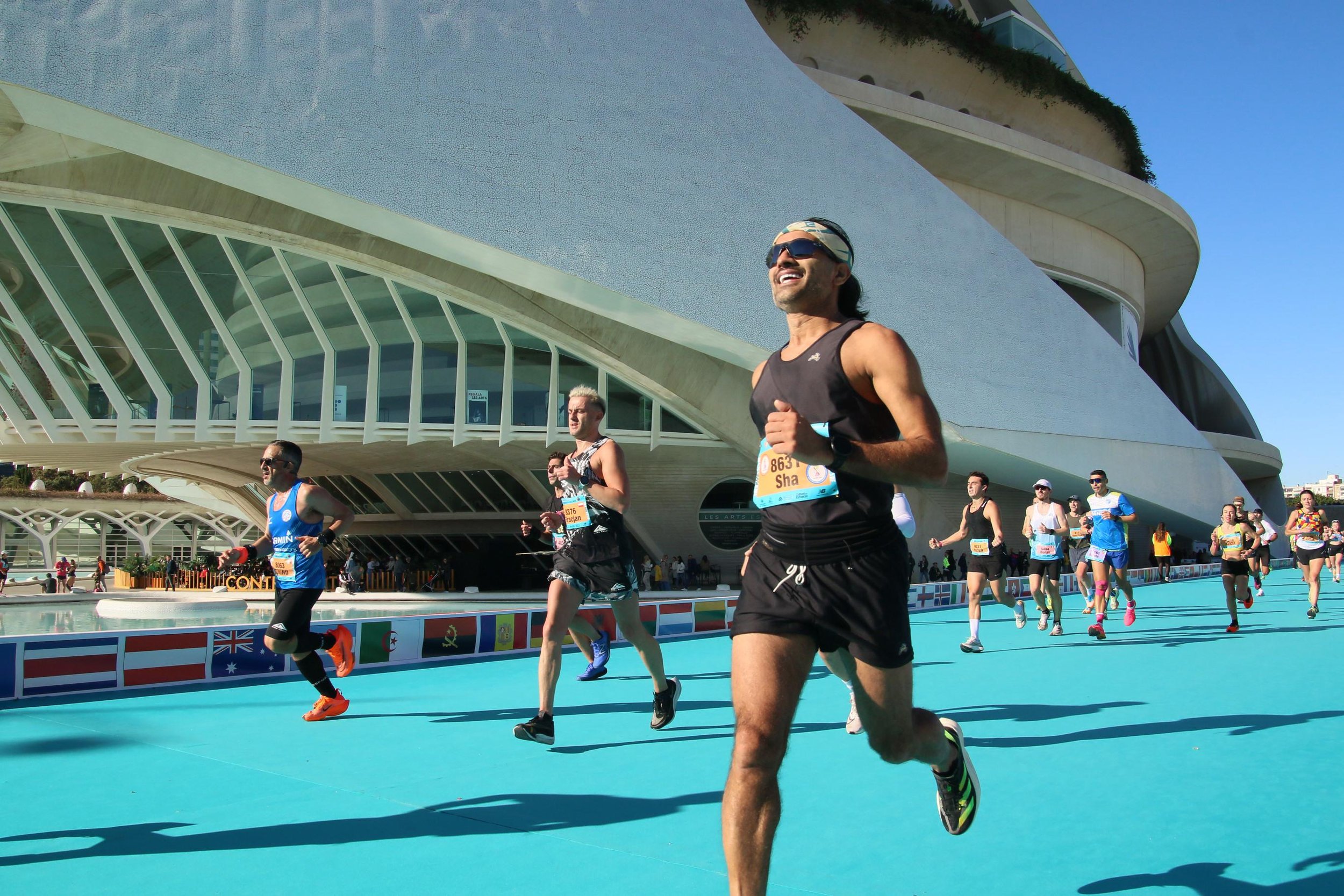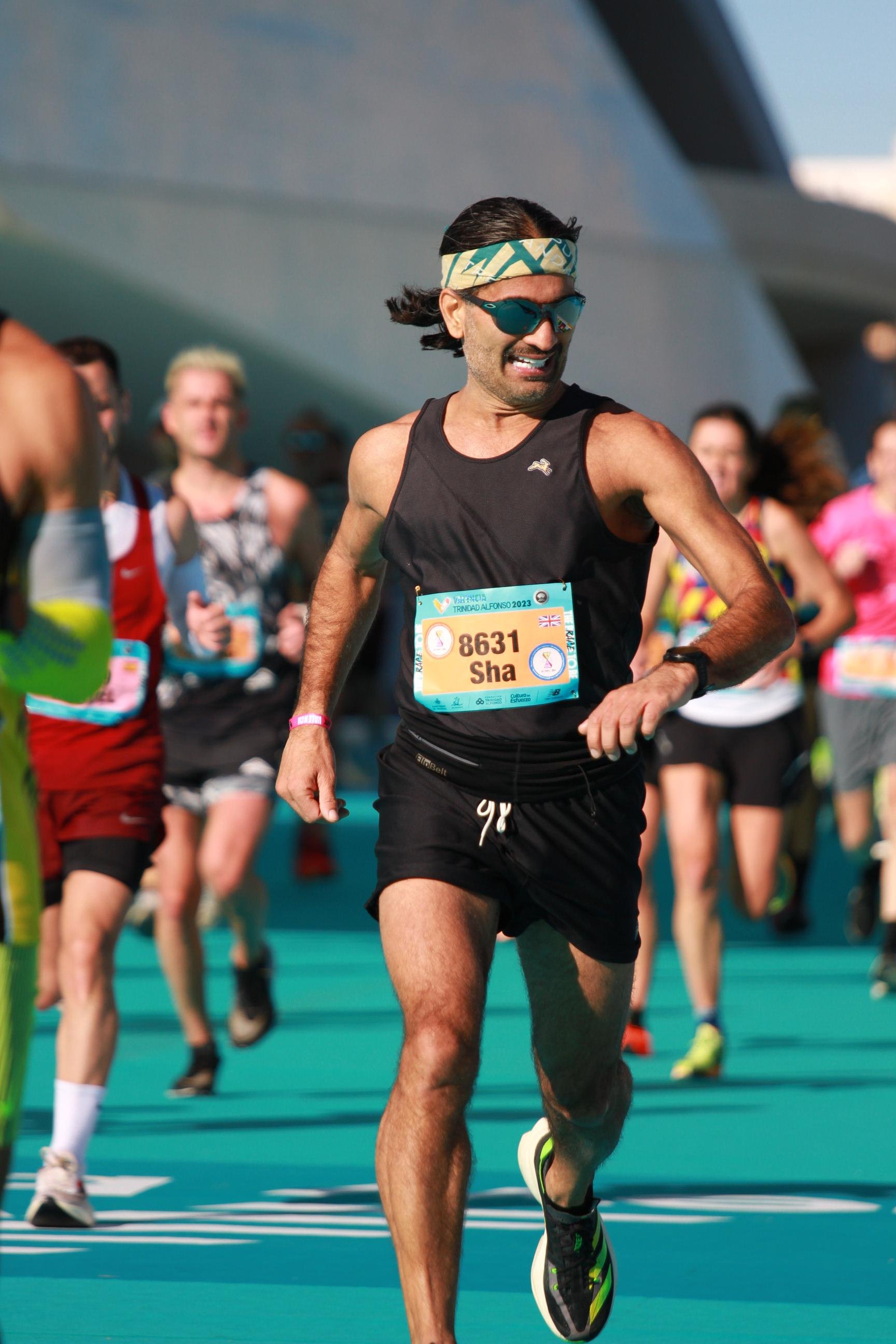Running Recap and Methodology 2023
Valencia Marathon, 3 Dec, 2023
This year I turned 50 in April and decided to embark on a journey to improve myself as a runner and UK Athletics accredited run coach.
For context: I am an avid reader of self-development, endurance sports performance, and have researched, curated and delivered a series of wellbeing seminars on mental health and humanising the workplace to corporates as my day job and to runners in my spare time for the past seven years. This means I also have the privilege of sitting in on topical workshops covering sleep, mental wellbeing, meditation, nutrition and more - delivered by experts in these fields, topping up my general intel.
I thought I would use the knowledge I have attained to improve my own development as a runner and devise a formula to support my athletes.
In short it has been a successful year of running for me, where I have managed to smash my personal records across 5K, 10K, 21.1K and 42.2K over the past 6 months, having strengthened my mindset, and improved my fitness and endurance levels through several activities including journaling, breathwork, and low heart rate training in the first 6 months of 2023.
Highlights of records smashed in 2023:
5K PR 19:48 > 19:08 (40 seconds) at the Tracksmith Twilight 5000 Event in July
10K PR 40:36 > 39:13 (1 minute 23 seconds) at the Sri Chinmoy 10K, Battersea Park in October
21.1K PR 1:29:12 > 1:26:35 (2 minutes 37 seconds) at Run Through, Battersea Park in October
42.2K PR 3:13:12 > 3:05:34 (7 minutes 38 seconds) at Valencia Marathon in December
I also broke my PB several times across 5K, HM and Marathon distances this year.
So how did I do it?
Well as the year started, I knew I had to do something different if I was going to make big enough strides to get close enough to be able to have a stab at the sub 3 marathon in the future. So, I developed a plan which focused heavily on the following:
Low Heart Rate Training
Mindset
Me-time
Boundaries/Pareto Principle
Aggregation of Marginal Gains
Low Heart Rate Training
There are many benefits to Low HR Training including:
Training in zone 2 will enable you to use fat as a energy source for longer, and more efficiently. Thus preserving your glycogen stores for longer. Glycogen gets broken down into glucose which serves as your fuel sourcefor higher-intensity efforts.
Low Heart Rate Training over time also means you are able to run faster at a lower heart rate, thus improving your efficiency and helping you achieve faster race times and PB's.
Mindset
Mindset is everything and can make the difference between an awful, good or perfect race.
To become a better endurance runner you need to change your relationship with perceived effort. Example would be when in a race you feel you can give no more, remind yourself how much you want it and how you will feel at the end if you don't believe you can continue at the same level or better until the end.
Each race should be teaching you about your ability and how you can improve from the previous experience, whether that is to pace yourself better or keep on going strong in the latter stages of a race - rather than slow down and regret it afterwards - what could have been.
Underdeveloped coping skills cause an athlete to struggle in some way; the experience of struggle proves an adaptive response from the athlete; this response gives rise; sooner or later, to a more effective coping skill.
Acceptance and supression - on pain perception. Some people have a natural tendency to look ahead to the repetition of a familiar pain stimulas with acceptance. They will tell themseves, this is going to hurt, but no more than before. Other people try to cope with the same situation through supression, or form of denial. they tell themselves "I really hope this doesn't hurt as much as last time."
Pyschologists found that acceptance reduces the unpleasantness of pain without reducing the pain itself - the same skill reduces perceived effort.
An attitude of acceptance towards an impeding, disagreeable experience is called "bracing yourself"
Me-time
Making time for yourself each day, means you are filling your cup first before you give your energy to tasks and other people. Because if there is nothing in your cup, there is nothing to give out to others. Always make time for yourself, whether that is for just five or fifty minutes each day.
Boundaries/Pareto Principle
Boundaries, unfortunately means learning to say no sometimes, and prioritising what is actually important.
Everything you do today will not make you a success tomorrow. 19th century, Italian Economist, Vilfredo Pareto discovered through his work that 20% of effort equates to 80% of output, and 80% of effort equates to just 20% of output. So, essentially, we need to be able to identify and focus on the most important aspects of our life - which will make a difference, rather than treating everything with the same importance. Because, if everything is important then nothing is important.
Aggregation of Marginal Gains
Most people think that if you want to improve in something like your running performance - then you need to think big and take drastic action - but there is another way.
You can implement the Aggregation of Marginal Gains strategy, just like the British Cycling Team did. During the period of 2007-2017, British cyclists won 178 world championships and sixty-six Olympic or Paralympic golds medals and captured 5 Tour de France victories in what is regarded as the most successful run in cycling history.
Which is basically searching for tiny margins of improvement in everything you do. The whole principle comes from the idea that if you break down everything that goes into running and improve it by 1%, you will get a significant increase when you put it all together.
Improving by just 1% each day over the course of a year can lead to up to a 37% improvement.
Top Tips on what to focus on:
Managing your stress levels (work on mindset, meditate, learn to say no, prioritise what is important, reduce distractions, and alcohol intake etc.)
Sleep (7-9 hours is optimal)
Rest, which is not the same as sleep
Warm up and cool down drills = flexibility, less chance of injury and increase speed
Form for endurance: high hips, relaxed shoulders, land on forefoot or heel, driving elbows backwards, and head should be held high and looking ahead)
Treat the training plan as a guide - listen to your body first
Coaching
Join a community
Eat more good carbs: sweet potato, wholegrain, wholemeal, orange juice, bananas, vegetables, beans and brown rice
Drinks plenty of water
Read the book Racing Weight
Journal to understand your thoughts and feelings better
Practice gratitude and notice the abundance in every area of your life 😊
Make an appointment with yourself each day, because you’re just as important as the people and tasks that you attend to
Yoga
Strength and Conditioning
Gait analysis
Fuelling
Zone 2 ❤️
What else can you add?
Written by
Running and Mindset Coach
Sha Hussain




